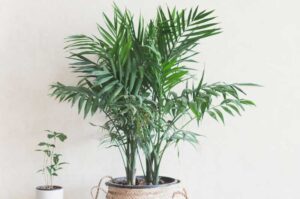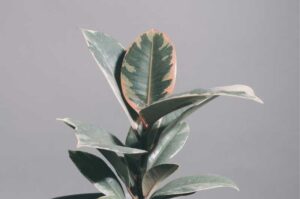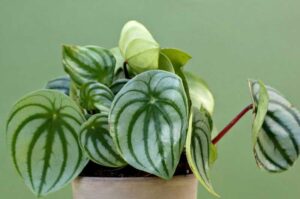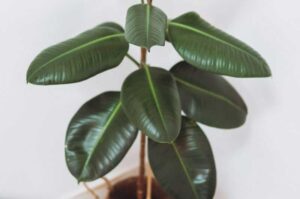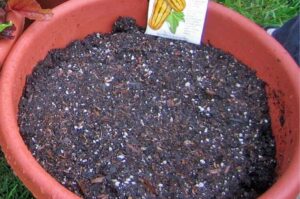Can We Keep Jade Plants in the Kitchen?
Do you also like to keep plants in your kitchen? Why? Because no matter how small your space is, you can always find room for one more plant on that windowsill over the sink or those empty shelves in the pantry. But here’s a question: Can you keep a Jade plant in your kitchen?
The short answer is Yes, you can. But the long answer is Jade plants prefer a dry environment where the humidity levels are low. Whereas humidity is on the higher side in the kitchen, you should avoid keeping your Jade plant in the kitchen for a long time. Also, there are many disadvantages associated with it. So it is not advisable to grow Jade plants in the kitchen.
The Jade plant is succulent, meaning that it can survive prolonged periods of drought. And since succulents don’t require much water, they’re ideal for people who want to grow plants in their kitchen but aren’t sure how much time or energy they’ll have to devote to the task.
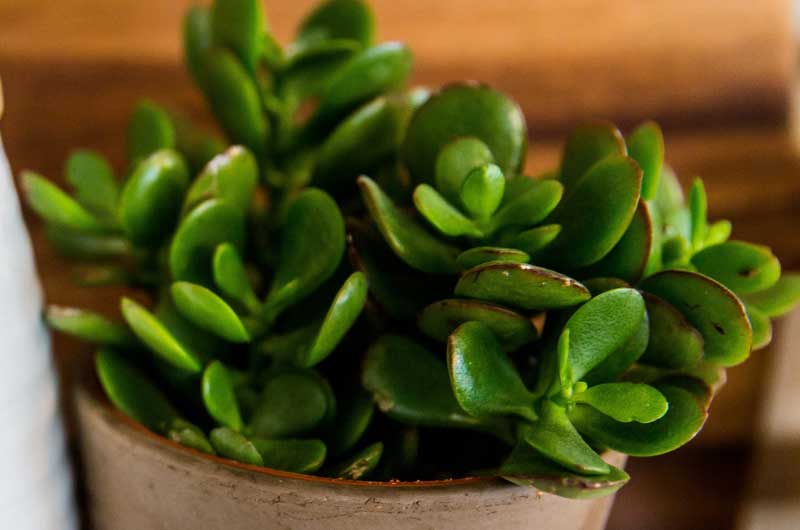
But plants in every corner of the house give an aesthetic feel, so you can try each corner and find out the perfect location for your Jade plant.
However, keeping the Jade plants in the kitchen has advantages and disadvantages. Let’s read to find out whether you should keep the Jade plant in the kitchen or not:
Benefits of maintaining the Jade plant in the kitchen
What makes this particular variety so great for kitchens? The answer lies here–It has one of the best growth rates of all houseplants!
And it’ll thrive even if you forget about it for several weeks at a time because it thrives on neglect!
You can pretty much keep this plant anywhere and let the soil dry out between watering.
Reduces carbon dioxide levels in the house
It is also believed to reduce carbon dioxide levels in your kitchen and improve the environment.
Jade plants absorb carbon dioxide at night and do photosynthesis during the daytime because of a process known as Crassulacean Acid Metabolism(CAM process). Due to this process, the CO2 level of the house is considerably reduced, and indoor quality improves.
It acts as an air purifier.
It also purifies the air around your house to no foul odor or humidity problems. You will get good health if you keep this plant near your kitchen window.
It effectively removes several volatile organic compounds (VOCs) like toluene and acetone from indoors. VOCs often cause health issues like insomnia, exhaustion, and confusion. Keeping Jade plants will help combat these problems.
Keeps the brain active
Mental issues are on a surge, especially since the pandemic began. From the younger generations to older ones, everyone is stressed. But thanks to this succulent plant, which helps reduce stress.
A study suggests that interacting with houseplants helps reduce stress levels. Moreover, they help maintain blood pressure too.
Medicinal properties
According to sources, its leaf extract has some medicinal properties and is used to treat ailments like diabetes, warts, and upset stomach.
So if you want to put your Jade plant in the kitchen, it’ll do just fine. Jade plants are succulents, and they need plenty of light. Therefore, a south-facing window is perfect for them—they’ll love the sun that streams in there all day long.
Increases humidity of the house
Like temperature control, humidity control is also essential.
Disadvantages of keeping the Jade plant in the kitchen
The Jade plant also does well in low light conditions and doesn’t need much care! The Jade plant is a great beginner plant; you definitely don’t have to be an expert gardener to keep your Jade healthy and happy.
Poisonous for pets
Its toxic sap is harmful to pets like dogs and cats, who may ingest the leaves if they’re left on the floor where they can reach them. It’s also dangerous for humans to eat the leaves because their skin can absorb some of the poison through contact.
When ingested by humans or animals, this toxin can cause nausea, vomiting, and diarrhea within minutes of eating any part of a Jade plant (including its leaves).
It is Maybe poisonous to other plants.
If you overwater a Jade plant, it can poison your other plants. Although the Jade plant itself is not poisonous, its roots are. If you plant your Jade plant in soil with other plants, it will spread its roots and poison them all with its sap.
You should avoid planting any kind of flower or vegetable garden near your Jade plant because they will become poisoned by its toxins.
Attracts insects and pests
Jade plants attract many insects, mosquitoes, and bugs. Besides, these succulents are the favorite food of pests like mealy bugs, aphids, spider mites, and scale insects.
They cause holes in the leaves and suck the sap. However, you can get rid of these pets by treating them with insecticidal soap or neem oil.
Conclusion
The Jade plant is a popular indoor houseplant because it’s easy to care for, grows well in low light conditions, and can endure just about any temperature. It makes an excellent addition to any home because of its glossy leaves and pretty pinkish-white flowers that bloom in wintertime.
Planting Jade in your home or office encourages positive energy and good luck.
The fact that the Jade plant is such an adaptable plant means that you can grow it almost anywhere you like: your office (to help relieve stress), kitchen (to freshen up the room), bathroom (for those who enjoy scented candles), or even bedroom (if it helps you relax).
The best part? It’s not difficult at all!
Remember that in the end, it’s not a good idea to have Jade plants in your kitchen or dining room. They make food taste bad and can be toxic if eaten by humans or pets—so keep them away from your kitchen!
The verdict is out on whether Jade plants are safe to have in the kitchen, but we recommend that you don’t take any chances. Keep your Jade plant outside where it belongs, and make sure all of its soil particles are sanitized before bringing it indoors!


